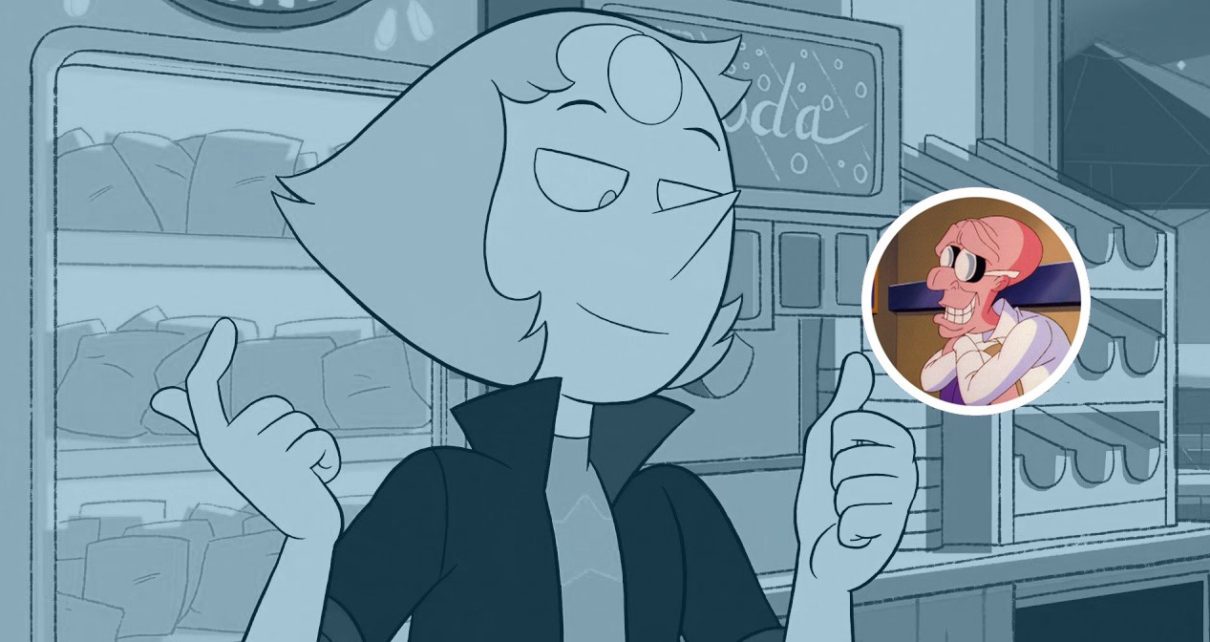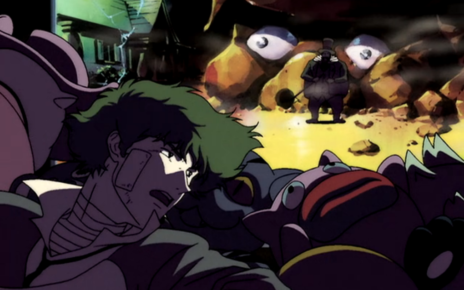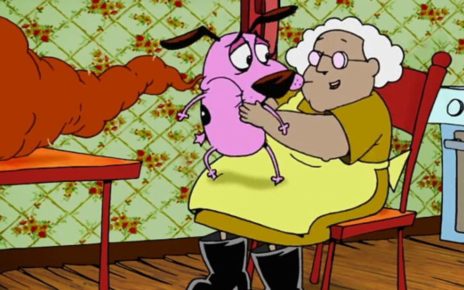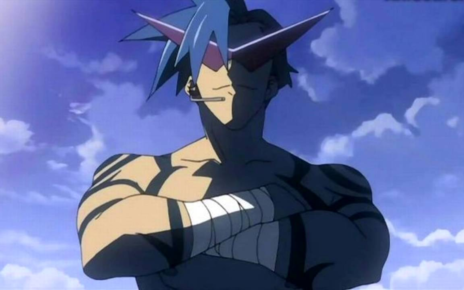This post contains spoilers for later seasons of Steven Universe.
Welcome to Ask Scratchy, a monthly column in which the Animaniacs’ top psychiatric mind answers the tough questions for cartoon characters from the four corners of the Earth. To submit a question, email the good doctor at askscratchansniff@gmail.com.
Dear Dr. Scratchansniff,
I’m a…human and I live in Beach City. I’m writing because I have a problem that involves other humans, which makes sense, because I’m a human, just like they are. So… a while back I had a complicated relationship with a woman, let’s call her Rosie. Now, I was fine with the men who would come into her life now and again. I was fine, because I knew that they didn’t really matter until… let’s call this human George.
See, I was fine when George came, and we fought like it was all some silly game. Over her, who she’d choose. But the thing is, after all those years, I never thought I’d lose.
It’s over, isn’t it? Isn’t it? Isn’t it over? George won, and Rosie chose him. And she loved him… and she’s gone. Rosie is… she’s gone, Dr. Scratchansniff. It’s over, isn’t it? Why can’t I move on?
We had such good times together. War and glory, reinvention. Fusion, freedom, her attention. Out in daylight, I felt like my potential was fully being realized. I was bold, precise, experimental.
But who am I now in this world without her? Petty and dull, with the nerve to doubt her? What does it matter? It’s already done. Now I’ve got to be there for her son.
Yes, Dr. Scratchansniff, Rosie had a son, who I’m raising, along with George and some other… humans. I guess my question is… George won, and Rosie chose him, and she loved him, and she’s gone. She died. It’s over, isn’t it? Why can’t I move on?
Signed,
An Oyster in Beach City
Guten Tag, Oyster in Beach City,
You, a human, are grappling with two of the most humaniest human experiences a human can face: love and loss. I suppose, though, that one might consider love and loss a single experience; one cannot exist without the other. That’s a harsh truth, Oyster, I know, but it’s a truth that it seems like you’re ready to unpack and, eventually, accept.
It sounds like you have a long, storied history with Rosie: you fought and frolicked and fused (which, by the way, sounds fascinating, and I’d love to hear more about what that is). She helped you grow and change in ways you never thought you could. That, dear Oyster, sounds like an exceptionally important relationship. As I’ve discussed before, we humans are fundamentally relational creatures. Our first relationships, typically those with our caregivers, set the stage for how we act and feel and think about all of our subsequent relationships. Those relationships also set the stage for how we think about and understand ourselves.
It’s important to remember that the stage is set, but the scenery isn’t nailed to the floor. Perhaps you were born into a family that sent you implicit, or unintentional, unconscious messages about who you were supposed to be. My family—if you’ll indulge me in a little self-disclosure—consistently communicated to me that intellect and academic achievement were of the utmost importance. Whether they excitedly praised me for my latest A+ test score or I noticed their brief but clearly disappointed facial expressions when I told them I was taking time to work between college and graduate school, I learned quickly that being smart and successful were two vital parts of my identity.
It sounds like Rosie shot a laser light cannon right through your previously developed self-concept. She showed you that you could be bold, precise, and experimental, all of which (I’m assuming) are traits you thought you would never be able to possess. And when you lost Rosie, I bet, you felt like you lost at least part of those new qualities as well. If Rosie made you bold, are you still bold now that she’s gone?
Now, I don’t answer questions like this explicitly very often, Oyster, so listen up: you are still bold, precise, and experimental. Just because Rosie is gone doesn’t mean you lose these qualities. Rosie may have paved the way for your transformation, Oyster, but that path has been forged; you came out of the other side of that relationship as a pearl, and that is not going to change.
Although Rosie helped you grow, it seems like your feelings for her have remained stagnant. You haven’t fully processed that she chose George instead of you and you haven’t fully processed that she’s now gone. Grief is an unwieldy, complicated set of emotions, encapsulating everything from depression to anger to denial. Fortunately for you, Oyster, there are several things you can do to both honor and mitigate that grief. First and foremost, I’d recommend that you seek out grief counseling. Your therapist or counselor will be able to, as we say in the field, meet you where you’re at; they’ll help you develop Oyster-specific strategies and coping skills to process your loss.
While you’re waiting for your initial appointment with your therapist, though, you may want to think about ways to honor your loss. Many people find that establishing a ritual that connects them to their deceased or otherwise departed loved one helps them cope with their loss. Were there holidays that you and Rosie celebrated? What about anniversaries of events that were important to both of you? How did you and Rosie honor these anniversaries? Can you still honor them now?
It’s also important to remember to allow yourself to feel your feelings. It’s tempting to avoid our grief and our sadness. No one really wants to spend time alone, sobbing while staring into the flame of a flickering candle and listening to sad music. I think I can speak for all of us humans when I say that we’d much rather be at the beach or the movies or saving our hometowns from alien invaders. But Oyster, the only way out is through. You’ll find that the more you allow yourself to feel, the more you will feel at peace with your loss. We never truly “get over” our losses (though your drunk uncle will try to argue with you about that over Thanksgiving dinner), we instead learn to accept them and adjust to our lives without the person we lost. If you’d like to learn more, here is an excellent resource on how to cope with the loss of a relationship.
One more thing before we finish, Oyster. Now, I don’t know you or Rosie or the nature or duration of your complicated relationship, but from your letter, it seems like you had some significant feelings for Rosie for quite some time. Did you and Rosie ever talk about these feelings? How did Rosie react? Was she dismissive? Accepting? Respectful? Angry? If you weren’t satisfied with her response, what kind of response did you want her to have? Did she have an honest conversation with you about her feelings for George and how that might impact your relationship with her? If so, did she respect your needs and your boundaries? I ask you these questions not to get you riled up about the way Rosie may or may not have treated you, but instead, I ask you these questions to encourage you to think about what you learned from this relationship. Was she really your ideal woman, or did you idolize her? What do you want out of your next relationship, and how do you want to be treated in it?
Remember, Oyster, you’re a pearl. In some schools of spiritual thought, pearls aid humans with self actualization, personal change, and inner peace. Try turning that spiritual energy back on yourself, Oyster. If you can do that, you will learn how to love yourself through your loss and learn how to live without your love. And das, Oyster, ist gut.
Pearl’s Ask Scratchy question was submitted by Marc Sollinger.
Ask Scratchy is for educational and entertainment purposes only. Although the character Dr. Scratchansniff is modeled after two psychoanalytic luminaries, Sigmund Freud and Otto Kernberg, this column is not intended to be a substitute for professional medical advice, diagnosis, or treatment. Always seek the advice of your physician, mental health professional, or other qualified health provider with any questions or concerns you may have regarding a medical condition.
Thanks for reading The Dot and Line, where we talk about animation of all kinds. Don’t forget to follow us on Twitter and sign up for our newsletter.





